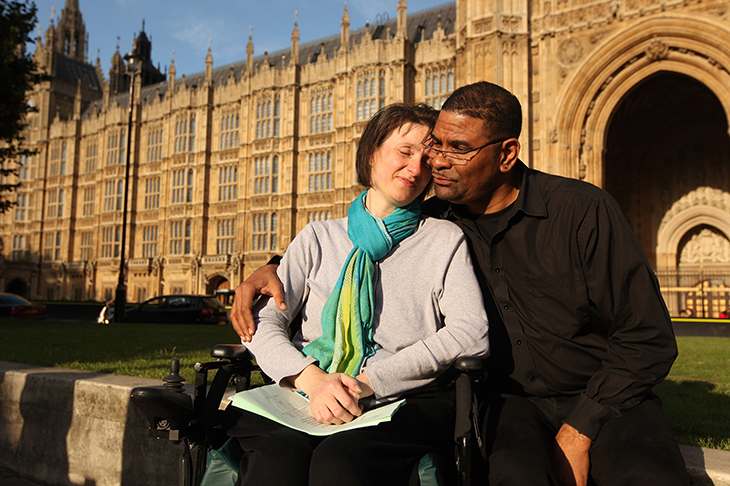Is it me or are we now faced (or perhaps I should say fazed?) much more often by stories in the news that test our moral and ethical principles to the limit, forcing us to question ourselves and what we think to such an extent that it becomes impossible to be sure of what is right? I can never understand the high-minded righteousness and full-blown convictions of the panellists on Radio 4’s Moral Maze, who each week are given a topical issue and who then spend 45 minutes tossing it about, testing the pros and cons and questioning a group of often baffled witnesses who are invited on to the programme to provide evidence for differing points of view. I always come away more confused than I was before listening, as if adopting or hanging on to moral certainty in the face of such complexity is a barrier to understanding rather than a help.
In contrast, even a half-decent radio drama that plays around with questions of how we should live, what we should live by, can help us to see things a bit more clearly, using fiction to explore worlds beyond our experience and encouraging us to think more broadly before settling on a point of view. As the barrister Lord Falconer said on Radio 4 this week: ‘The power of a play that reveals what it’s actually like for people who feel utterly abandoned by a law that appears to have no understanding is huge.’
He was talking to Deborah Bowman, professor of medical ethics and law at St George’s Hospital in south-west London, on Test Case: Debbie Purdy, a discussion between experts about the law on assisted suicide, or rather the lack of clarity about that law. Many families in recent years have had to deal with this dilemma, living with a terminally ill loved one who is being kept alive but who wants to die and cannot do so without help. Will we be questioned by the authorities and threatened with prosecution if we take them to Dignitas in Switzerland? Or do we continue to watch them suffering, with no quality of life whatsoever, kept alive by technology?
Purdy, who was afflicted with progressive multiple sclerosis, was anxious to protect her husband, a black Cuban musician. She discovered that even to ask for advice from what was then called the Voluntary Euthanasia Society could be breaking the law, which is (deliberately) unclear about assisted suicide. The only thing she could do was to bring a case before the House of Lords arguing that there must be more clarity about what her husband’s position would be should he decide to help her to die at her request.
Joy Wilkinson’s drama based on Purdy’s memoir (and directed by Jonquil Panting) was broadcast just before the discussion, exploring the issues in a way that brought them vividly to life. Before Purdy’s case, her husband could have been sentenced to as much as 14 years in jail for aiding and abetting. The law still stands but at least guidelines have now been established. Purdy, as portrayed here, convinced the Lords with her infectious optimism, her joy in life, insisting — even when tied to a wheelchair and unable to do the smallest things for herself — that ‘life is always preferable to death’. But she didn’t want that life prolonged once she was no longer able to communicate. That’s what scared her most.
Last week, too, the repeat of an afternoon play by Clara Glynn on Radio 4 looked at the question of returning Isis fighters and how they should be treated just as the headlines were dominated by the story of Shamima Begum and her newborn baby trapped in a refugee camp on the borders of Syria. A World Elsewhere: The Return (directed by David Neville and still available on catch-up) took us to Glasgow and to Rida’s return from Syria after 18 months living in the caliphate (an earlier play looked at how she was radicalised online).
Rida is arrested on arrival at the airport and released only after her father secures the help of a solicitor. Once home her mother refuses to have anything to do with her, rushing away to visit relatives in Manchester; Rida herself is too discomfited to leave the house. A former schoolfriend, Samera, tries to ease her back into her old life as a carefree teenager but Rida has secrets and too much new knowledge ever to fit back into where she once belonged. ‘You’re so naive,’ she tells Samera, who cannot understand what Rida has experienced in those 18 months away, or why she’s now so changed. ‘I’m not a good person,’ says Rida. ‘I might have been once. But I’m not any more.’
If at times it was a bit too simplistic, with only 45 minutes to explore such a troubling story, it gave us the chance to think more broadly about forgiveness and retribution, loyalty and betrayal, and that huge gulf that now exists between Rida and everyone she now meets. Can she ever fit back in? Should more effort be made to reintegrate someone so lost and damaged? Should she be given another chance?
Got something to add? Join the discussion and comment below.
Get 10 issues for just $10
Subscribe to The Spectator Australia today for the next 10 magazine issues, plus full online access, for just $10.
You might disagree with half of it, but you’ll enjoy reading all of it. Try your first month for free, then just $2 a week for the remainder of your first year.



![British poet Salena Godden presenter of Mrs Death Misses Death on Radio 4. [Photo: Roberto Ricciuti / Getty Images]](https://www.spectator.com.au/wp-content/uploads/2018/12/Radio.jpg?w=620)










Comments
Don't miss out
Join the conversation with other Spectator Australia readers. Subscribe to leave a comment.
SUBSCRIBEAlready a subscriber? Log in